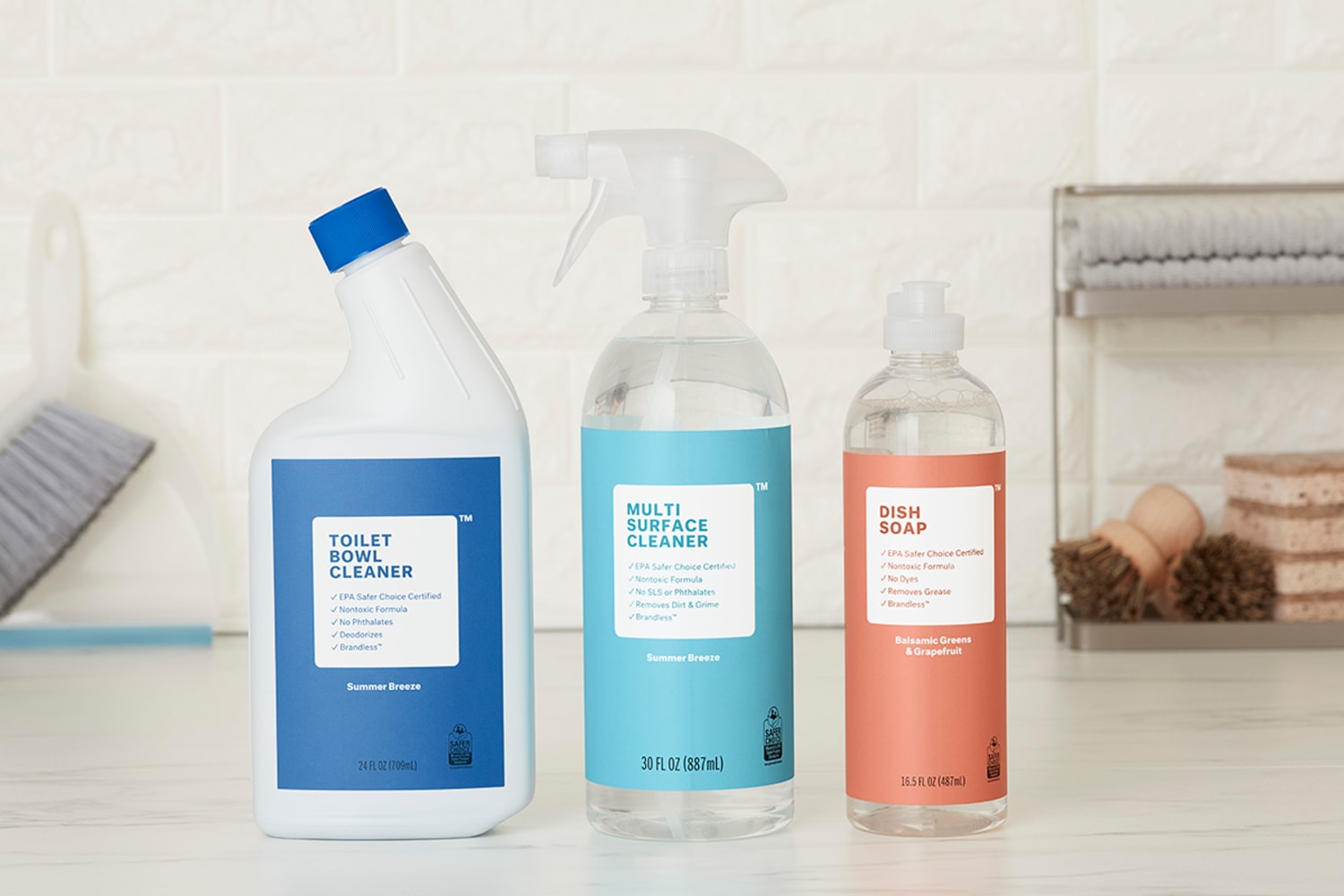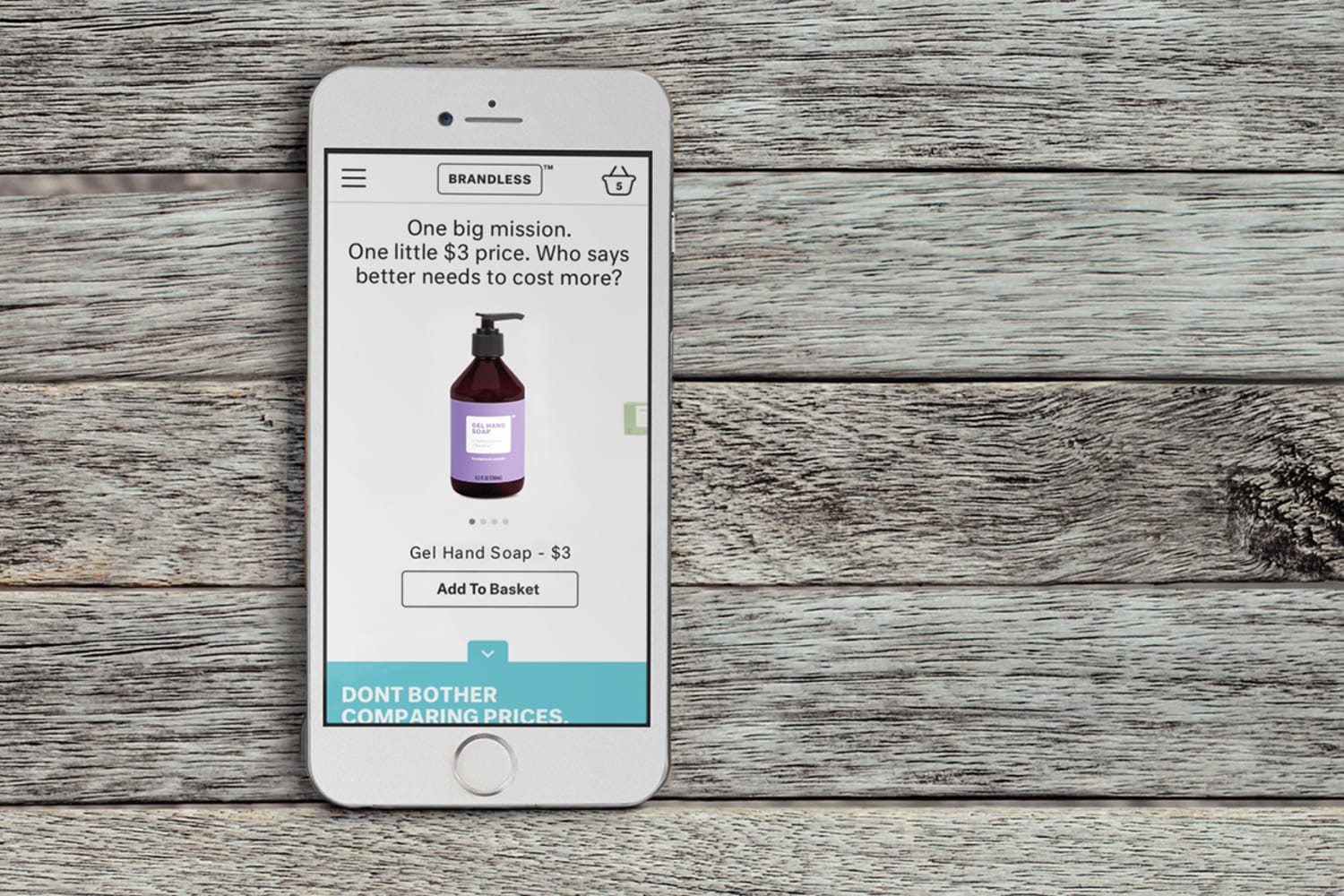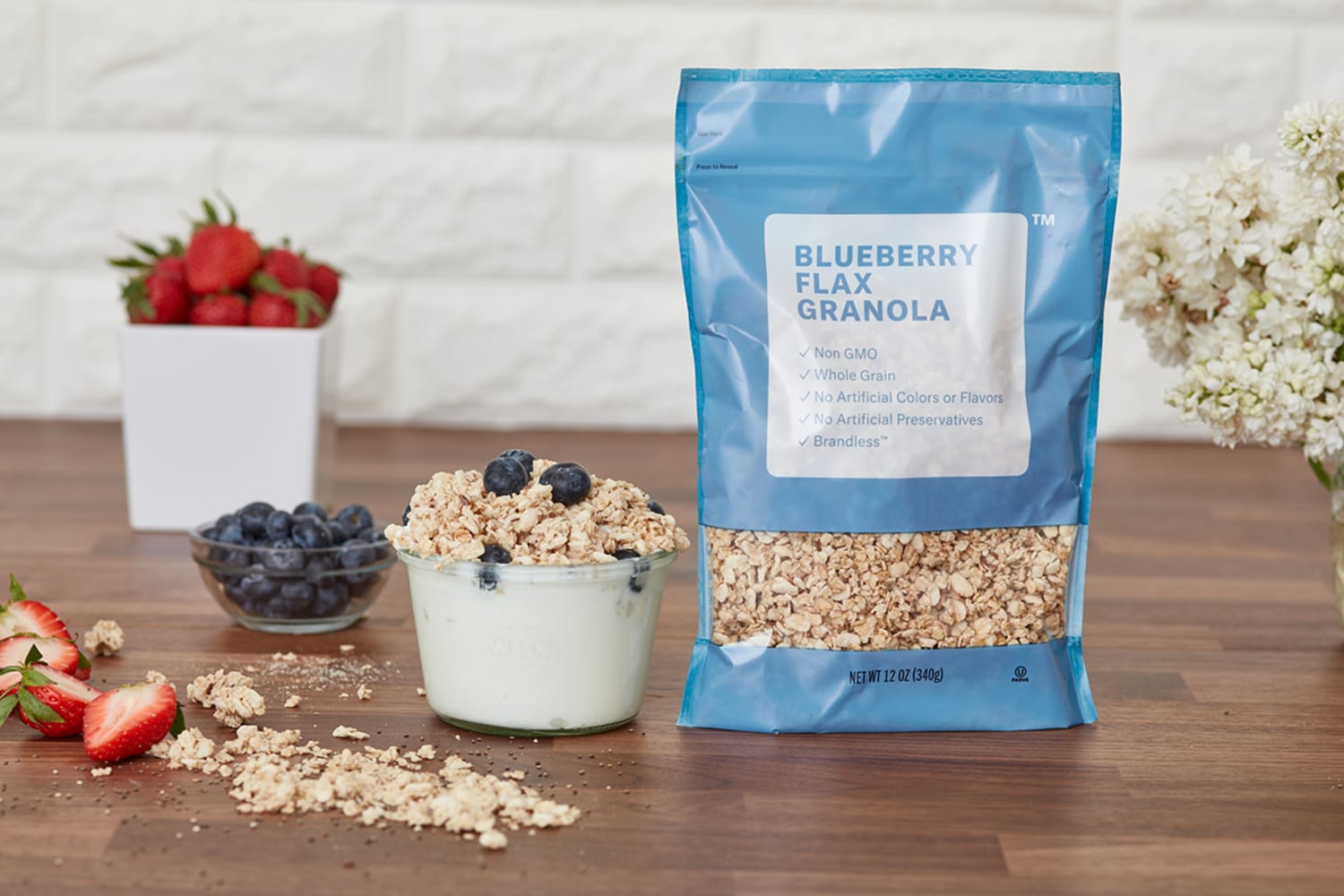What do you get when you cross the online dollar store with an upscale private label brand? That’s what new online store Brandless aims to find out.
Launching this week, Brandless aims to disrupt the consumer packaged goods (CPG) industry. Each product costs just $3, with more than 200 options across food, beauty, personal care and home goods. Most products tout their millennial-friendly values: many are free from GMOs, organic, fair trade, kosher, and gluten free. Shipping is $9, or free for orders past $72; a $36 annual membership lowers the threshold to $48.





